News
-
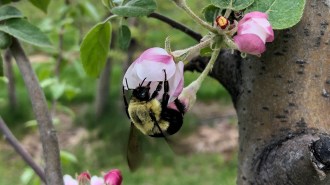 Animals
AnimalsHibernating bumblebee queens have a superpower: Surviving for days underwater
After some bumblebee queens were accidentally submerged in water and survived, researchers found them to be surprisingly tolerant of flooding.
-
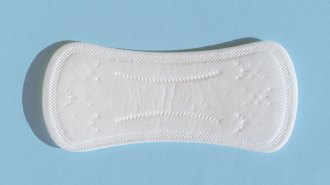 Health & Medicine
Health & MedicineWhat can period blood reveal about a person’s health?
The FDA recently approved a menstrual blood test for diabetes, the first diagnostic of any kind based on period blood. It may be just the beginning.
By Payal Dhar -
 Artificial Intelligence
Artificial IntelligenceThis robot can tell when you’re about to smile — and smile back
Using machine learning, researchers trained Emo to make facial expressions in sync with humans.
-
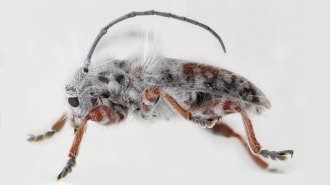 Animals
AnimalsThis newfound longhorn beetle species is unusually fluffy
Discovered in Australia, the beetle is covered in whitish hairs and has distinctive eye lobes, antennae and leg shapes.
-
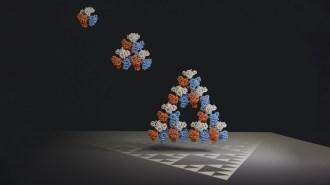 Math
MathScientists find a naturally occurring molecule that forms a fractal
The protein assembles itself into a repeating triangle pattern. The fractal seems to be an accident of evolution, scientists say.
-
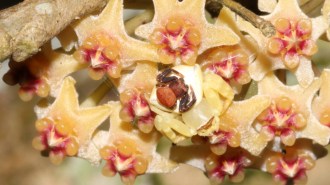 Animals
AnimalsIn a first, these crab spiders appear to collaborate, creating camouflage
Scientists found a pair of mating crab spiders blending in with a flower. The report may be the first known case of cooperative camouflage in spiders.
-
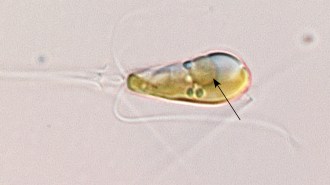 Life
LifeThis marine alga is the first known eukaryote to pull nitrogen from air
An alga’s bacterial symbiote has evolved into an organelle that turns atmospheric nitrogen into ammonia, making the alga unique among eukaryotes.
By Jake Buehler -
 Space
SpaceHow a sugar acid crucial for life could have formed in interstellar clouds
Computer calculations and lab experiments have revealed a possible mechanism for the creation of glyceric acid, which has been seen in meteorites.
-
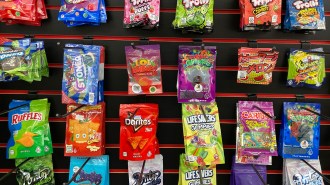 Health & Medicine
Health & MedicineTeens are using an unregulated form of THC. Here’s what we know
The compound is called delta-8-THC and, like delta-9-THC in marijuana, comes from the cannabis plant and may hurt teens’ brains.
-
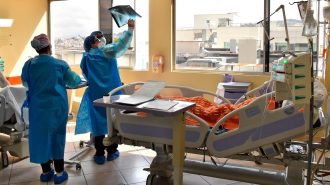 Health & Medicine
Health & MedicineImmune cells’ intense reaction to the coronavirus may lead to pneumonia
Immune cells that patrol lung tissue may play a role in the progression of a coronavirus infection to pneumonia, lab studies show.
-
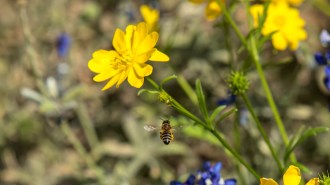 Ecosystems
EcosystemsFlowers may be big antennas for bees’ electrical signals
The finding suggests a way for plants to share information about nearby pollinators and communicate when to trigger nectar production.
-
 Health & Medicine
Health & MedicineA protein found in sweat may protect people from Lyme disease
The protein stopped Borrelia burgdorferi, a bacterium that is transmitted by ticks, from growing in dishes or infecting mice.